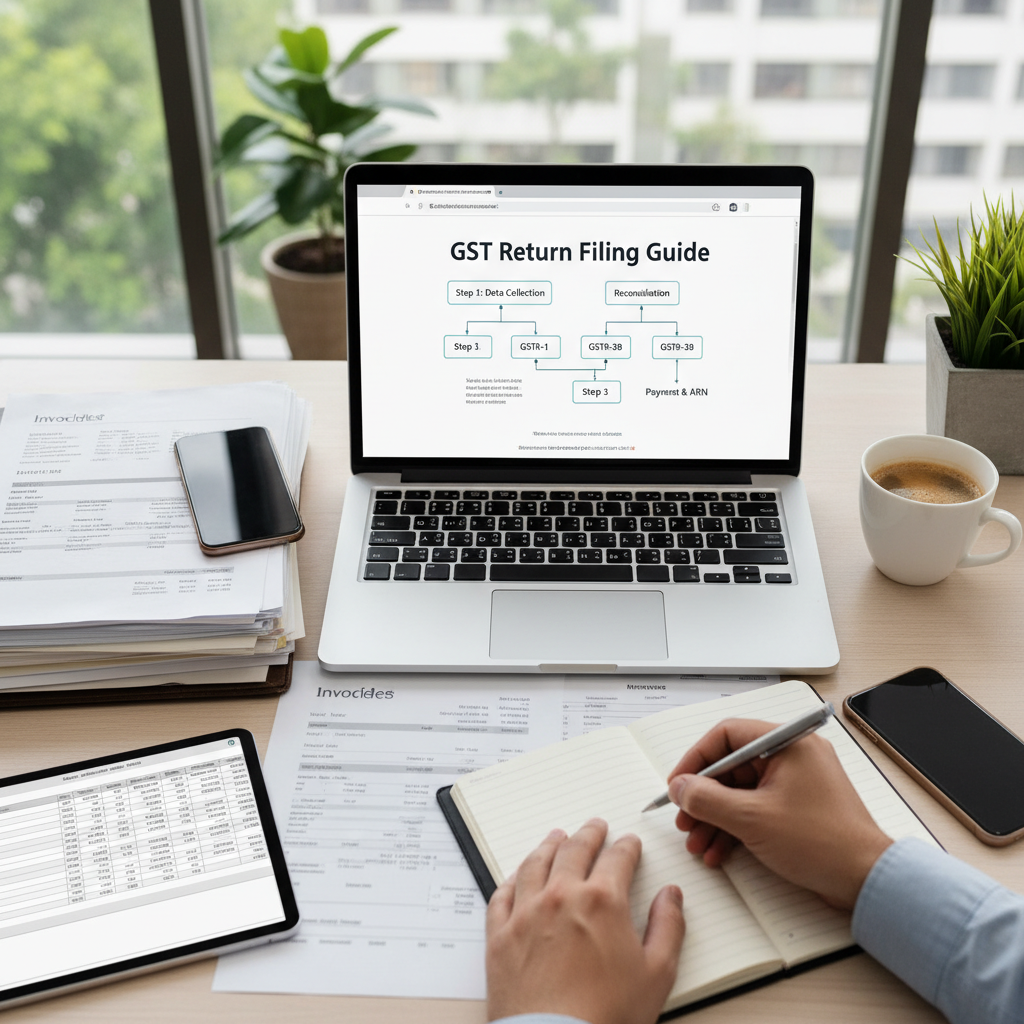As the new year approaches, big changes are coming for Government Employees. The 8th pay commission 2026 will raise salaries by a lot. Starting January 1, 2026, it will update salaries and allowances for all central government workers.
This means a big boost in your income. You can look forward to a salary increase of 108% to 186%. This is a huge improvement in what you take home.
About 48.62 lakh Central Government Employees and 67.85 lakh pensioners will benefit. They could see their salaries go up by ₹20,000 to ₹25,000. As a government worker, you’re in for a 25% to 35% salary increase.
This change will greatly improve your financial situation. It’s important to keep up with news on salary hikes for Government employees. This way, you won’t miss out on any updates.
Understanding the 8th Pay Commission Implementation
The 8th pay commission news is significant for central government employees in India. It starts on January 1, 2026. The main goals are to update salaries and allowances to match today’s costs.
Over 50 lakh central government employees and 65 lakh pensioners will benefit from the 8th pay commission news. Their salaries and benefits will likely change a lot. 8th pay commission news is a big news for Government employees.
Here is a summary of the expected changes in the 8th pay commission salary pay matrix:
| Pay Matrix Level | 7th CPC Basic Salary | Projected 8th CPC Basic Salary |
|---|---|---|
| 1 | Rs. 18,000 | Rs. 51,480 |
| 2 | Rs. 19,900 | Rs. 56,914 |
| 3 | Rs. 21,700 | Rs. 62,062 |
The 8th pay commission Central Government will bring significant changes to the payment structure of central government employees in India. The implementation timeline and key objectives are key parts of the plan.
Expected Salary Hike Percentages for Government Employees
If you work for the government, you may be eagerly anticipating the 8th Pay Commission employees salary hike. Experts predict basic salaries could go up by 20% to 35%. This is great news for central government workers who have been waiting for a pay boost.
The 8th pay commission employees salary hike calculator will help you figure out your new salary. It takes into account your job grade, location, and extra pay. With these hikes, government employees can enjoy better financial stability and a higher quality of life.
Some important points about the 8th pay commission employees salary hike are:
- Basic salaries are expected to rise between 20% to 35%
- The 8th Pay Commission salary calculator will help employees estimate their revised salary
- Government employees can expect improved financial stability and a better standard of living
Remember, the actual salary hike percentages might change. This depends on the fitment factor and the government’s final decision.
Keep an eye out for more news on the 8th Pay Commission salary hike and its effects on government workers. With these salary hikes, government employees are looking forward to a more prosperous future.
| Category | Expected Salary Hike |
|---|---|
| Basic Salaries | 20% to 35% |
| Pension | 20% to 30% |
Basic Pay Revision Structure Under 8th CPC
The basic pay revision under the 8th CPC will introduce a 8th pay commission salary pay matrix. It will also include grade pay modifications and pay level adjustments. The fitment factor is key in adjusting salaries and pensions of government employees.
Understanding the new basic pay matrix is vital. It outlines salary levels for different positions and seniority. This makes salary determination and progression simpler.
The grade pay modifications are also important. They help determine the revised basic salaries and pensions. With a 8th pay commission fitment factor of 1.92 to 2.86, salaries could rise by Rs 40,000 to Rs 45,000.
The 8th CPC is set to change the basic pay revision structure a lot. The minimum basic pay could jump by 186%, to Rs 51,480 per month.
Some key points about the basic pay revision structure under the 8th CPC include:
- The new basic pay matrix will simplify salary determination and progression
- Grade pay modifications will impact revised basic salaries and pensions
- The 8th CPC is expected to bring about significant changes to the basic pay revision structure
Looking ahead to the 8th CPC implementation, staying informed is key. The new basic pay matrix and grade pay modifications will bring big changes to your compensation.
Impact on Different Employee Categories
The 8th pay commission will greatly affect various employee groups. This includes central government workers, defense staff, and retirees. It’s key to know how the new pay system will change your salary and perks.
The 8th pay commission’s plans will touch many areas. Central government employees will likely see better pay and morale. This is true for new hires, who will get a big boost in their basic pay and extra benefits.
Some main points of the impact include:
- Higher basic pay and extra benefits for central government workers
- Better perks and benefits for defense staff
- More pension benefits for retired folks
The 8th pay commission’s plans are based on the current system, which started in 2016. The new system aims to raise salaries and benefits a lot. It proposes a minimum basic pay of Rs 51,480, which is about 186% more than now.
As you wait for the 8th pay commission to start, keep up with the latest news. The changes will be big for different groups. Knowing what’s coming will help you get ready for the future.
Dearness Allowance Merger Guidelines
The dearness allowance merger guidelines are key in the 8th Pay Commission. They aim to make the salary structure simpler for central government employees. The dearness allowance merger will use a formula to merge DA with basic pay, creating a unified salary.
DA Calculation Formula
The formula for calculating DA will consider the current DA, which is 53% of basic pay, starting from July 1, 2024. This ensures a fair and clear process for everyone.
By merging DA with basic pay, the salary system will become simpler. This change will help over 1 crore central government employees and pensioners. It will make their salaries easier to understand and manage.
The table below highlights the main points of the dearness allowance merger guidelines:
| Aspect | Description |
|---|---|
| Dearness Allowance | 53% of basic pay, effective from July 1, 2024 |
| DA Calculation Formula | Used to calculate revised dearness allowance |
| Integration with Basic Pay | Unified salary structure, reducing complexity |
The dearness allowance merger guidelines are essential in the 8th Pay Commission. They ensure a fair and clear salary system for central government employees.
House Rent Allowance Modifications
The 8th pay commission is set to change the house rent allowance (HRA) for central government employees. These changes will affect how employees get housing benefits. The commission will look at the current HRA and adjust it to match today’s housing costs.
Some key changes include:
- Updating HRA rates to match today’s market
- Creating new HRA slabs for different places
- Changing how HRA is calculated to make it more affordable
The changes in house rent allowance will be a big part of the 8th Pay Commission. They aim to make housing benefits more realistic and affordable. This will help reduce the financial stress of housing costs for employees.
Implementing these changes will be a key part of the 8th Pay Commission. The commission will work to make the transition smooth. With these 8th pay commission and hra changes, employees will get better housing benefits that match today’s prices.
| HRA Category | Current HRA Rate | Revised HRA Rate |
|---|---|---|
| Metropolitan Cities | 20-30% | 25-35% |
| Non-Metropolitan Cities | 15-25% | 20-30% |
Travel and Transportation Allowance Updates
The 8th Pay Commission is set to start on January 1, 2026. Central government employees are excited for the travel and transportation allowance updates. These changes will make travel more affordable and realistic for them.
The commission will look at the current travel and transportation allowance. They will update it to match today’s market rates. This means changes in how cities are classified and in the rates for transport allowance.
- Revised city-wise classification to reflect the current cost of living in different cities
- Updated transport allowance rates to account for current fuel prices and transportation costs
- Increased travel benefits for central government employees, reducing the financial burden associated with travel
The travel and transportation allowance updates are key to the 8th Pay Commission. Central government employees will see big changes in their travel benefits. With these updates, traveling for work or personal reasons will be easier and more affordable.
Pension Benefits and Revisions
The 8th pay commission is set to make big changes in pension benefits and revisions for central government employees and pensioners. It will look at the current pension system and make updates to match today’s rates.
Pensioners are asking for a few key things. They want to get back the commuted part of their pension after 12 years, not 15. They also want to remove the 5% limit on compassionate appointments. This would let more family members of deceased employees get help.
The 8th pay commission plans to change the minimum basic pension, which is now Rs 9,000. They will also look at the 8th pay commission fitment factor, which affects how pensions are calculated. Here’s a comparison of these changes with the 6th and 7th pay commissions:
| Pay Commission | Minimum Basic Pension | Fitment Factor |
|---|---|---|
| 6th Pay Commission | Rs 3,500 | 1.86 |
| 7th Pay Commission | Rs 9,000 | 2.57 |
| 8th Pay Commission (proposed) | To be revised | To be revised |
The changes from the 8th pay commission will greatly affect pensioners. It’s important that these changes are fair and reflect today’s market. This way, pensioners can enjoy a secure and comfortable retirement.
8th Pay Commission 2026: A Detailed Look
The 8th Pay Commission 2026 is set to make a big economic impact on the country. It plans to raise the minimum basic pay from ₹18,000 to between ₹41,000 and ₹51,480. This change will boost spending and help the economy grow. Yet, it will also mean the government needs to spend more on salaries and benefits.
An in-depth comprehensive analysis shows the 8th Pay Commission 2026 will change salaries, allowances, and benefits for central government employees. This will lead to more spending and economic growth. The 8th pay commission 2026 is set to start on January 1, 2026. It will help about 5 million government employees and 6.5 million pensioners.
Economic Impact and Fiscal Considerations
The financial effects of the 8th Pay Commission are expected to be over ₹1.5 lakh crore each year. This will significantly affect the government’s finances. The economic impact will be wide-ranging, with more spending and economic growth. But, the government must carefully consider the fiscal considerations to fund the increased salaries and benefits.
| Category | Current Salary | Projected Salary |
|---|---|---|
| Minimum Basic Pay | ₹18,000 | ₹41,000 – ₹51,480 |
| Maximum Pay | ₹2,50,000 | ₹3,00,000 – ₹3,50,000 |
The 8th Pay Commission 2026 will greatly affect the economy and the government’s finances. It’s important to carefully consider the fiscal considerations to ensure the increased salaries and benefits are funded well. A comprehensive analysis of the commission’s recommendations is key to understanding the economic impact and fiscal considerations of the 8th Pay Commission 2026.
State Government Employee Benefits
The 8th pay commission will greatly affect state government employee benefits. Over 1 crore serving and retired Central Government employees and officers will see changes. You can expect updates in your salary, allowances, and benefits.
State government employees can look forward to several benefits from the 8th pay commission. These include:
- Increased salaries and benefits
- Improved allowances, such as house rent allowance and travel allowance
- Enhanced pension benefits for retired employees
The 8th pay commission’s recommendations will also impact the state government’s finances. Budget changes are expected to start from FY27. As a state government employee, staying updated on the 8th pay commission is key.
The 8th pay commission’s fitment factor will be between 2.5 to 2.8 times. This means a salary increase of Rs 40,000 to Rs 45,000. The minimum basic pay is also expected to rise by 186%, to around Rs 51,480 per month.
Interactive Salary Calculator Tool
The 8th pay commission has made big changes in the salaries of central government workers. An interactive 8th pay commission salary calculator tool has been created to help estimate new salaries. This tool lets employees put in their details and get a personalized salary estimate.
Using the salary calculator is easy. Just enter your current grade, select pay level and fitment factor. The tool will then show your new salary based on the 8th pay commission Central Government rules. You can also customize the inputs to fit your situation.
The benefits of using the salary calculator include:
- Accurate estimation of revised salary
- Easy to use and understand as it is user friendly
- Customization options for personalized results
With the interactive 8th pay commission salary calculator, central government employees can understand their new salary structure. This tool is a great resource. It helps employees plan their finances and make smart career choices.
Expert Insights and Predictions
As the 8th pay commission approaches, expert insights and predictions show it will greatly affect central government employees. Over 50 lakh employees will see better financial health and higher morale.
Experts believe the 8th pay commission will change salaries, allowances, and benefits a lot. The fitment factor, which was 2.57 under the 7th pay commission, is likely to rise. This means higher salaries and pensions for government workers.
Some key points to consider about the Central Government 8th pay commission include:
- Increased salaries and pensions for central government employees
- Improved financial well-being and morale among employees
- Significant fiscal implications that need to be managed by the government
The 8th pay commission latest news is expected to have a big impact on the economy. Expert insights and predictions suggest it will boost consumer spending and economic growth. It will be key to watch how it affects both government employees and the economy.
Comparison with 7th Pay Commission
The 8th Pay Commission aims to make big changes in salaries, allowances, and benefits for government workers. It will improve on what the 7th pay commission did. This new commission will also look at the history of past pay commissions.
One major change is the expected pay increase. The 8th Pay Commission plans to give a 20% hike to senior staff and 25% to workers up to level five. This follows the trend of previous pay commissions, which have always increased wages by double digits for the government.
The following table provides a comparison of the 7th and 8th pay commissions:
| Pay Commission | Minimum Basic Pay | Fitment Factor |
|---|---|---|
| 7th Pay Commission | Rs 18,000 | 2.57 |
| 8th Pay Commission | Rs 51,480 | 2.86 |
In conclusion, the 8th Pay Commission is set to make significant changes in salaries, allowances, and benefits for government workers. It will build on the 7th pay commission’s work and consider the history of past commissions.
8th pay commission latest news, Latest Government Updates and Announcements
The government will share 8th pay commission latest news, 8th pay commission latest government updates and 8th pay commission latest announcements on the 8th Pay Commission. This is important for central government employees to know about the commission’s plans and how they will be affected. You will hear about the commission’s progress, when it will start, and how it will change things for employees.
The 8th pay commission will look at salaries for over 10 million central government workers and retirees. The changes are set to start in the financial year 2026-27. There will be no changes in 2025-26. To keep up, follow the government updates on the official website or through trusted news sources.
Some important things to remember about the 8th Pay Commission are:
- It’s expected to start by February 15, 2025.
- The report is due by November 30, 2025.
- The government will review it in December 2025.
- The new pay will start in January 2026.
By keeping up with the latest government updates and announcements, you’ll know what’s happening with the 8th Pay Commission. Always check the official government website and trusted news sources for the latest on the 8th pay commission and government updates.
Implementation Challenges and Solutions
The 8th Pay Commission’s implementation will face big challenges, like administrative hurdles. You must tackle these to make the commission’s plans work smoothly.
Some key challenges and solutions are:
- Streamlining the process to cut down on red tape
- Training employees on the new pay and benefits
- Getting more funds for the higher salaries and perks
The government must team up with employee unions and others to find solutions. This way, they can make the 8th Pay Commission’s plans a success.
The proposed fixes aim to overcome the administrative obstacles. This will lead to a smooth shift to the new pay system. Government employees can look forward to better salaries and benefits.
| Current Basic Pay | Proposed Basic Pay | Increase |
|---|---|---|
| Rs 18,000 | Rs 51,480 | Rs 33,480 |
| Rs 19,900 | Rs 56,914 | Rs 37,014 |
| Rs 21,700 | Rs 62,062 | Rs 40,362 |
Conclusion
The 8th Pay Commission’s changes are coming, and it’s a big deal for central government workers. They will see their salaries go up by 20% to 30%. This will help over 50 lakh employees and 65 lakh pensioners a lot.
The lowest-paid workers will see their pay jump from ₹18,000 to up to ₹51,480. That’s a huge 186% increase. It shows the government cares about its workers’ financial health.
The 8th Pay Commission’s effects will be seen in many areas. Salaries, allowances, and benefits will all go up. This will make workers happier and more productive, helping the country grow.
Even though there might be some bumps in the way, the government is serious about making things better. It’s a big step towards a brighter future for everyone involved.
So, get ready for the 8th Pay Commission’s changes. It’s going to bring a lot of good things to central government employees and their families. A new era of prosperity is coming.
FAQ
Q: What is 8th pay commission?
A: The 8th pay commission (8वां वेतन आयोग) is a proposed committee by the Central Government to review and recommend changes to the current salary structure, allowances, and benefits for Government Employees.
Q: What is the expected salary hike in the 8th Pay Commission 2026 or How much salary increase in 8th pay commission?
A: Experts say the 8th Pay Commission could raise salaries by 20% to 35%. This is based on the 7th CPC’s trends.
Q: When will the 8th Pay Commission be implemented?
A: The 8th Pay Commission will start on January 1, 2026. It will give a big salary boost to government workers.
Q: Who will be the target beneficiaries of the 8th Pay Commission?
A: Over 50 lakh central government employees and 65 lakh pensioners will benefit. This includes defense personnel.
Q: How will the basic pay be revised under the 8th CPC?
A: The 8th CPC will introduce a new basic pay matrix. It will also modify grade pay and adjust pay levels. The fitment factor is key to the new salaries and pensions.
Q: How will the 8th Pay Commission impact different employee categories?
A: The 8th Pay Commission will greatly benefit central government employees, defense personnel, and pensioners. It will improve their financial situation and morale.
Q: How will the dearness allowance be merged with the basic pay?
A: The 8th Pay Commission will guide how DA is merged with basic pay. It will use a DA calculation formula for a unified salary structure.
Q: What changes are expected in the house rent allowance?
A: The 8th Pay Commission will update the house rent allowance. It will make sure the allowance matches current market rates, helping employees afford housing.
Q: How will the travel and transportation allowance be updated?
A: The 8th Pay Commission will revise the travel and transportation allowance. It will update city-wise classification and transport allowance rates, making travel more affordable for employees.
Q: What changes are expected in the pension benefits?
A: The 8th Pay Commission will review and revise pension benefits. It will ensure pensions are realistic and affordable for pensioners.
Q: How will the 8th Pay Commission impact the economy and government finances?
A: The 8th Pay Commission’s recommendations will have big economic and fiscal effects. Increased salaries and benefits will boost consumption and growth. But, the government will need more resources to fund these changes.
Q: How will the 8th Pay Commission affect state government employees?
A: The 8th Pay Commission’s impact will also be felt by state government employees. State governments will need to find more money for the increased salaries and benefits.
Q: How can the 8th Pay Commission salary calculator tool be used?
A: The 8th pay commission salary calculator tool lets employees estimate their new salary. It considers grade, location, and allowances, giving a personalized look at the 8th Pay Commission’s impact.
Q: What are the expert predictions and insights on the 8th Pay Commission?
A: Experts believe the 8th Pay Commission will greatly benefit central government employees. They expect big salary increases, better allowances, and benefits, leading to improved financial well-being and morale.
Q: How does the 8th Pay Commission compare to the 7th Pay Commission?
A: The 8th Pay Commission will build on the 7th Pay Commission’s work. It will make significant changes to salaries, allowances, and benefits. It will also consider the history of previous pay commissions.
Q: Where can I find the latest government updates and announcements on the 8th Pay Commission?
A: The government will share updates and announcements on the 8th Pay Commission. These will be important for central government employees to stay informed about the commission’s plans and implementation.
Q: What are the challenges and solutions for the implementation of the 8th Pay Commission?
A: Implementing the 8th Pay Commission will face challenges, like administrative hurdles. The government will need to streamline the process, train employees, and allocate more resources to fund the increased salaries and benefits.
Please Rate this post
Click to rate















